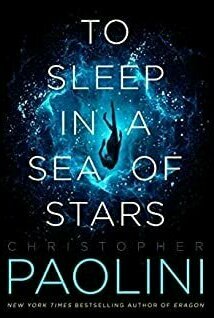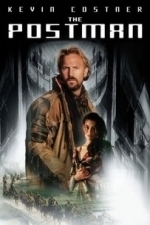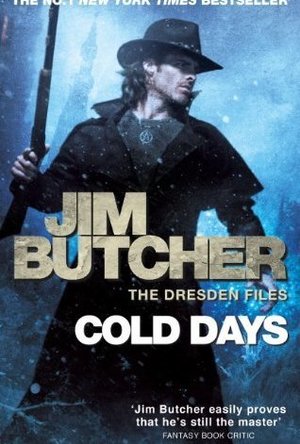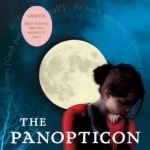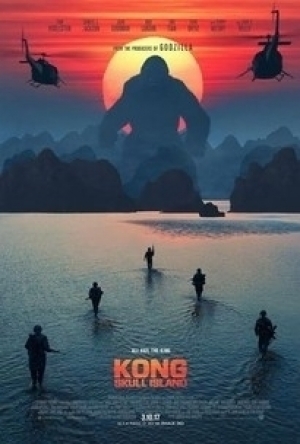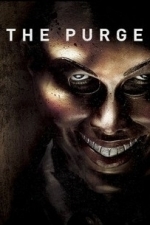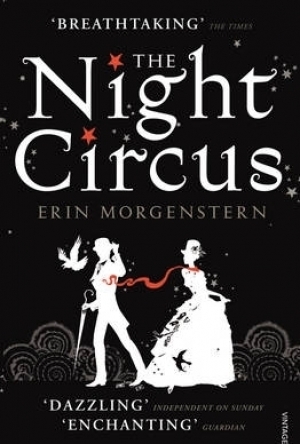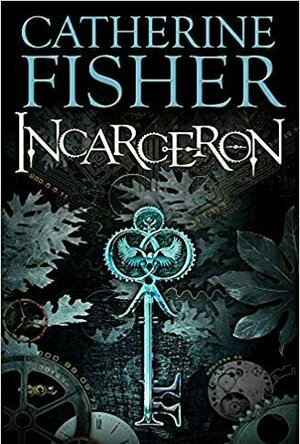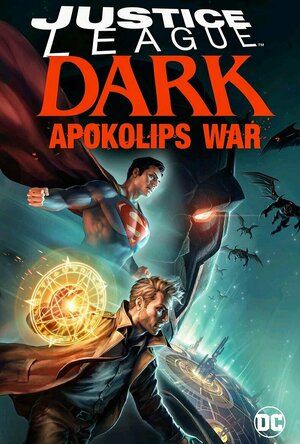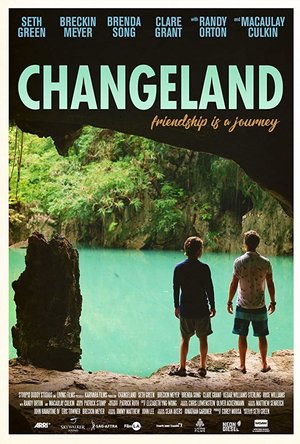Search
Search results
Christine A. (965 KP) rated To Sleep in a Sea of Stars in Books
Sep 16, 2020
Space Epic From The Author Of The Eragon Series
I was provided with a complimentary copy of this book so I could give an honest review. The opinions are entirely my own, and any quotes are taken from the ARC and may be different in the final published copy.
Having read and thoroughly enjoyed Christopher Paolini's Eragon series, I looked forward to listening to the audiobook of his latest novel, To Sleep in a Sea of Stars.
Paolini did not disappoint. His work on this space opera spanned for nearly a decade. The research completed to make it accurate as possible shows he did not rush his writing.
Do not expect to read/listen to this in one sitting. The run time is 32 hours, 29 minutes, and the book is 880 pages. The book could have been released into a trilogy but do not let that scare you. The story may be long, but it is well built and full of completely fleshed out characters and worlds. My favorite character is Gregorovich, a ship mind. Paolini's sarcastic words and the narrator's voice makes him a character as memorable as paranoid Marvin from H2G2.
In 2013, the narrator, Jennifer Hale, was recognized by Guinness World Records as "the most prolific video game voice actor (female)." Her voice is instantly recognizable, and the array of voices she uses in the audiobook are separate and distinct from each other.
Paolini's story and Hale's voices make this an enjoyable story to remember.
This 200-word review was published on Philomathinphila.com on 9/15/20.
Having read and thoroughly enjoyed Christopher Paolini's Eragon series, I looked forward to listening to the audiobook of his latest novel, To Sleep in a Sea of Stars.
Paolini did not disappoint. His work on this space opera spanned for nearly a decade. The research completed to make it accurate as possible shows he did not rush his writing.
Do not expect to read/listen to this in one sitting. The run time is 32 hours, 29 minutes, and the book is 880 pages. The book could have been released into a trilogy but do not let that scare you. The story may be long, but it is well built and full of completely fleshed out characters and worlds. My favorite character is Gregorovich, a ship mind. Paolini's sarcastic words and the narrator's voice makes him a character as memorable as paranoid Marvin from H2G2.
In 2013, the narrator, Jennifer Hale, was recognized by Guinness World Records as "the most prolific video game voice actor (female)." Her voice is instantly recognizable, and the array of voices she uses in the audiobook are separate and distinct from each other.
Paolini's story and Hale's voices make this an enjoyable story to remember.
This 200-word review was published on Philomathinphila.com on 9/15/20.
David McK (3562 KP) rated The Postman (1997) in Movies
Jun 21, 2022
Kevin Costner released 'Waterworld' in 1995.
It sunk at the box office.
This was a few years later, based on the highly-respected David Brin novel of the same name.
I'm sure he wasn't expecting this one to flop either. Set in the far-off future of 2013, following a un-named catastrophe of some sort (no, not Trump)
The problem, I feel, is simply the length at nearly 3 hours long - there's some good ideas in here, and some good scenes, and a refreshing society-is-now-getting-better-again thread, after the unnamed events that led to the dystopian future shown at the start of the movie, but I do feel that the first act (in particular), playing up the threat of the fascist army led by General Bethlehem, could have been excised somewhat.
I understand why it's there - it needs to give Costner's character something to push against - but I think the book (and from what I remember) handled that aspect better than the movie does.
So, yeah, Costner plays a drifter who - after his escape from that army - discovers an old Postman uniform, initially putting it on only to become warm and then 'delivering the mail' simply as a scam to get food and shelter. However, over the course of that movie, that scam takes on a life of its own and more and more becomes the truth, finally ending with a code in the late 2040s after his death and where - going by dress, etc, - things seem to be back to 'normal'.
It sunk at the box office.
This was a few years later, based on the highly-respected David Brin novel of the same name.
I'm sure he wasn't expecting this one to flop either. Set in the far-off future of 2013, following a un-named catastrophe of some sort (no, not Trump)
The problem, I feel, is simply the length at nearly 3 hours long - there's some good ideas in here, and some good scenes, and a refreshing society-is-now-getting-better-again thread, after the unnamed events that led to the dystopian future shown at the start of the movie, but I do feel that the first act (in particular), playing up the threat of the fascist army led by General Bethlehem, could have been excised somewhat.
I understand why it's there - it needs to give Costner's character something to push against - but I think the book (and from what I remember) handled that aspect better than the movie does.
So, yeah, Costner plays a drifter who - after his escape from that army - discovers an old Postman uniform, initially putting it on only to become warm and then 'delivering the mail' simply as a scam to get food and shelter. However, over the course of that movie, that scam takes on a life of its own and more and more becomes the truth, finally ending with a code in the late 2040s after his death and where - going by dress, etc, - things seem to be back to 'normal'.
David McK (3562 KP) rated Cold Days (The Dresden Files, #14) in Books
Jan 30, 2019 (Updated Jan 16, 2022)
[2022 update]
Setting the bar pretty high already for the title of best-book-I've-read-this-year
[original 2013 review]
I heard (or read) somewhere a while back that the Dresden Files series was meant to run for about 20 books, with Jim Butcher having the general gist of the series as a whole already in mind. If that's true, then we must be on - or approaching - the home stretch, with this as book number 14 in the series.
And what a book it is, too.
By far one of the best books I've read this year, this starts with the previously-thought-to-be-dead Harry Dresden returned to health (of a sort) and life by Mab, the faerie Winter Queen, who is holding him to his promise to be her Winter Knight (which is also the reason why he was 'killed' (note the inverted commas) at the end of <i>Changes</i>, 2 books ago).
The Faerie play a larger role in this than in any book since, perhaps, <i>Summer Knight</i>, with characters from that earlier entry returning. Indeed, there's so much back-story here I wouldn't recommend picking this one up without reading any of the previous: normally, I'd count that against a novel, but not in this case. This one also leaves a couple of plot threads left hanging for the next entry, which I'm already looking forward to.
Let's hope it's not another year before I get reading it!
Setting the bar pretty high already for the title of best-book-I've-read-this-year
[original 2013 review]
I heard (or read) somewhere a while back that the Dresden Files series was meant to run for about 20 books, with Jim Butcher having the general gist of the series as a whole already in mind. If that's true, then we must be on - or approaching - the home stretch, with this as book number 14 in the series.
And what a book it is, too.
By far one of the best books I've read this year, this starts with the previously-thought-to-be-dead Harry Dresden returned to health (of a sort) and life by Mab, the faerie Winter Queen, who is holding him to his promise to be her Winter Knight (which is also the reason why he was 'killed' (note the inverted commas) at the end of <i>Changes</i>, 2 books ago).
The Faerie play a larger role in this than in any book since, perhaps, <i>Summer Knight</i>, with characters from that earlier entry returning. Indeed, there's so much back-story here I wouldn't recommend picking this one up without reading any of the previous: normally, I'd count that against a novel, but not in this case. This one also leaves a couple of plot threads left hanging for the next entry, which I'm already looking forward to.
Let's hope it's not another year before I get reading it!
Eilidh G Clark (177 KP) rated The Panopticon in Books
May 13, 2017
This is my all time favouurite book.
Jenny Fagan stated in an interview in 2013 that prior to writing the novel The Panopticon (2012) she had one question, ‘is it possible to achieve autonomy?’ Fagan explores this question throughout her novel with the character of Anais Hendrix. I would also suggest that the author is metaphorically exploring whether Scotland can achieve autonomy as an independent nation. Autonomy, in relation to the individual, is self-governance- or being able to decide for oneself
At the beginning of the novel, the fifteen-year old Anais is governed by the state. In contemporary British society, a child under the age of sixteen, regardless of her social situation is, by law, governed by an adult/s. Anais has lived her life in the care system with the exception of a short period in which she lived with an adopted mother. It is for this reason that she is able to see society from outside of the family unit. By creating the motherless child, Fagan presents Anais as the ‘other’ from both a societal perspective- ‘communities dinnae like no-ones,’ and from the viewpoint of the protagonist, ‘What they really want is me dead,’ (TP, p.23). Without a family, and through a lack of legitimate information regarding her birth mother, Anais believes that she was created in a lab:
I’M AN experiment. I always have been, It’s a given, a liberty, a fact. They watch me. Not just in school or social-work reviews, courts or police cells – they watch everywhere. […] They’re there when I stare too long or too clearly, without flinching. […] They watch me, I know it, and I can’t find anywhere any more – where they can’t see, (TP, Prologue).
Note that in the above quotation, the protagonist describes her assumed identity as a ‘liberty’. Liberty, in this case, means freedom from the oppressive nature of the family. Although Anais desires the nurturing aspect of the family, ‘I just want my mum,’ (Tp, p.269), her lack of family exposes her to the nature of contemporary society as a constant monitoring of civilians. In the above quotation, the repetition of ‘they’ suggests that she feels outside of the norm. The most important aspect of the above quote however, is that it is told from the protagonist’s thoughts. While Fagan gives Anais a certain amount of autonomy through both the first-person narrator, and the vernacular, the reliability of the narrator is increased by presenting the characters inner thoughts. While this limited autonomy is important, full autonomy is restricted by age. Bever suggests that ‘the capacity for individuals to become autonomous seems radically dependent on the contingent historical circumstances and societies into which they are born. Anais’ awareness of herself as the ‘other’ allows her an insight into the oppressive role of society, which is normally hindered in childhood due to the role of the family and it’s teaching of norms and values.
The sense of otherness can also be looked at in regard to Scotland and its role within the UK. The UK is a family of four countries under one state. Regardless of Scotland’s devolution, it has still to comply with a large amount of UK policies. Scotland has different values and goals to that of the UK making it ‘other’. With a different cultural identity to its neighbours, many Scottish citizens are seeking independence to protect its dwindling identity, whilst for others, independence is political.
Anais’ awareness of social control causes her a feeling of shrinking. This, according to her social workers is an identity problem:
Fifty odd moves, three different names, born in a nuthouse to a nobody that was never seen again. Identity problem? I dinnae have an identity problem – I dinnae have an identity, (TP, p.99).
Anais’ reaction in the above statement describes her lack of knowledge of her ancestry. I would argue that her identity is forced upon her from the fifty-one times that she has moved home, the care system, the solitary time in which she was adopted, the relationships she has had - both female and male, her friends but more importantly, from the unreliable account of her birth from the monk in the metal institution. The lack of family does not alter the fact that she is alive, and that all the fragments of her past make up an identity. For Anais, ‘Families are overrated […] ‘I umnay fooled. Not by families,’(TP, p.63-64). Like Anais, Scotland’s identity is ambiguous. Independence will allow Scotland political autonomy, however, within a global economy, Scotland still has limited autonomy. As culturally ‘other’ however, Scotland has already achieved autonomy with or without a state through its language, its people and its traditions.
Fagan demonstrates the difficulty of total autonomy though Anais and the birthday game, a game in which she creates her own identity. When she turns sixteen years of age, Anais is free from societal care and flees from her imprisonment, ‘I am Frances Jones from Paris. I am not a face on a missing-person poster, I am not a number or a statistic in a file. I have no-one watching me, […] I−begin today,’ (TP, p.323-324). ‘I’ suggests singularity and is still opposite to ‘them’ or ‘we’. Autonomy is therefore, ambiguous; Anais is still living within the same system under a false identity, she is therefore, segregated from everyone that she knows. Moreover, by changing Anais’ name to a name that ‘means freedom.’ (TP, p.323), Fagan is pointing out the difference between freedom and autonomy. Freedom is an emotive word, and there are two concepts of freedom – freedom from, which in Anais’ situation means freedom from the system of observation. Freedom to, however, is more problematic as Anais can never be free from the neoliberal system of rules and law – as Scotland would see in the case of independence. I would therefore conclude that Anais/Scotland has always has limited autonomy through cultural identity and history. I believe autonomy can only reside within the system through cultural and individual imagination and not out with it.
What does this mean for Scotland? If Scotland is part of the global community, can it become an autonomous nation? Is there a solution or should Anais/Scotland accept that cultural autonomy is imagined or self-contained. Can a collective identity and imagination change the political system? Finally, can culture survive without independence?
Bibliography
Crupp, Tyler, ‘Autonomy and Contemporary Political Theory’, in Encyclopaedia of Political Theory, ed. Mark Bevor (London: Sage Publications, 2010)
Fagan, Jenni, The Panopticon (London: Windmill Books, 2013), p.6.
Windmill Books. (2013). Granta Best Young British Novelist Jenni Fagan, . accessed 22 November 2015. Published on Apr 16, 2013
At the beginning of the novel, the fifteen-year old Anais is governed by the state. In contemporary British society, a child under the age of sixteen, regardless of her social situation is, by law, governed by an adult/s. Anais has lived her life in the care system with the exception of a short period in which she lived with an adopted mother. It is for this reason that she is able to see society from outside of the family unit. By creating the motherless child, Fagan presents Anais as the ‘other’ from both a societal perspective- ‘communities dinnae like no-ones,’ and from the viewpoint of the protagonist, ‘What they really want is me dead,’ (TP, p.23). Without a family, and through a lack of legitimate information regarding her birth mother, Anais believes that she was created in a lab:
I’M AN experiment. I always have been, It’s a given, a liberty, a fact. They watch me. Not just in school or social-work reviews, courts or police cells – they watch everywhere. […] They’re there when I stare too long or too clearly, without flinching. […] They watch me, I know it, and I can’t find anywhere any more – where they can’t see, (TP, Prologue).
Note that in the above quotation, the protagonist describes her assumed identity as a ‘liberty’. Liberty, in this case, means freedom from the oppressive nature of the family. Although Anais desires the nurturing aspect of the family, ‘I just want my mum,’ (Tp, p.269), her lack of family exposes her to the nature of contemporary society as a constant monitoring of civilians. In the above quotation, the repetition of ‘they’ suggests that she feels outside of the norm. The most important aspect of the above quote however, is that it is told from the protagonist’s thoughts. While Fagan gives Anais a certain amount of autonomy through both the first-person narrator, and the vernacular, the reliability of the narrator is increased by presenting the characters inner thoughts. While this limited autonomy is important, full autonomy is restricted by age. Bever suggests that ‘the capacity for individuals to become autonomous seems radically dependent on the contingent historical circumstances and societies into which they are born. Anais’ awareness of herself as the ‘other’ allows her an insight into the oppressive role of society, which is normally hindered in childhood due to the role of the family and it’s teaching of norms and values.
The sense of otherness can also be looked at in regard to Scotland and its role within the UK. The UK is a family of four countries under one state. Regardless of Scotland’s devolution, it has still to comply with a large amount of UK policies. Scotland has different values and goals to that of the UK making it ‘other’. With a different cultural identity to its neighbours, many Scottish citizens are seeking independence to protect its dwindling identity, whilst for others, independence is political.
Anais’ awareness of social control causes her a feeling of shrinking. This, according to her social workers is an identity problem:
Fifty odd moves, three different names, born in a nuthouse to a nobody that was never seen again. Identity problem? I dinnae have an identity problem – I dinnae have an identity, (TP, p.99).
Anais’ reaction in the above statement describes her lack of knowledge of her ancestry. I would argue that her identity is forced upon her from the fifty-one times that she has moved home, the care system, the solitary time in which she was adopted, the relationships she has had - both female and male, her friends but more importantly, from the unreliable account of her birth from the monk in the metal institution. The lack of family does not alter the fact that she is alive, and that all the fragments of her past make up an identity. For Anais, ‘Families are overrated […] ‘I umnay fooled. Not by families,’(TP, p.63-64). Like Anais, Scotland’s identity is ambiguous. Independence will allow Scotland political autonomy, however, within a global economy, Scotland still has limited autonomy. As culturally ‘other’ however, Scotland has already achieved autonomy with or without a state through its language, its people and its traditions.
Fagan demonstrates the difficulty of total autonomy though Anais and the birthday game, a game in which she creates her own identity. When she turns sixteen years of age, Anais is free from societal care and flees from her imprisonment, ‘I am Frances Jones from Paris. I am not a face on a missing-person poster, I am not a number or a statistic in a file. I have no-one watching me, […] I−begin today,’ (TP, p.323-324). ‘I’ suggests singularity and is still opposite to ‘them’ or ‘we’. Autonomy is therefore, ambiguous; Anais is still living within the same system under a false identity, she is therefore, segregated from everyone that she knows. Moreover, by changing Anais’ name to a name that ‘means freedom.’ (TP, p.323), Fagan is pointing out the difference between freedom and autonomy. Freedom is an emotive word, and there are two concepts of freedom – freedom from, which in Anais’ situation means freedom from the system of observation. Freedom to, however, is more problematic as Anais can never be free from the neoliberal system of rules and law – as Scotland would see in the case of independence. I would therefore conclude that Anais/Scotland has always has limited autonomy through cultural identity and history. I believe autonomy can only reside within the system through cultural and individual imagination and not out with it.
What does this mean for Scotland? If Scotland is part of the global community, can it become an autonomous nation? Is there a solution or should Anais/Scotland accept that cultural autonomy is imagined or self-contained. Can a collective identity and imagination change the political system? Finally, can culture survive without independence?
Bibliography
Crupp, Tyler, ‘Autonomy and Contemporary Political Theory’, in Encyclopaedia of Political Theory, ed. Mark Bevor (London: Sage Publications, 2010)
Fagan, Jenni, The Panopticon (London: Windmill Books, 2013), p.6.
Windmill Books. (2013). Granta Best Young British Novelist Jenni Fagan, . accessed 22 November 2015. Published on Apr 16, 2013
Movie Metropolis (309 KP) rated Kong: Skull Island (2017) in Movies
Jun 10, 2019
Beauty and the Beast
The fact that Legendary Pictures are busying themselves with an epic Godzilla vs King Kong showdown is one of the worst kept secrets in Hollywood. Naturally, this presented a problem for Peter Jackson’s Kong who simply doesn’t measure up against the giant lizard in 2013’s Godzilla.
And in Hollywood, size really does matter; therefore the monstrous ape has been given a monumental upgrade featuring an all-star cast and some serious talent behind the camera. But is Kong: Skull Island as bananas as its trailers would suggest? Or are we looking at something a little more mainstream?
At the climax of the Vietnam War, a team of explorers and mercenaries head to an unchartered island in the South Pacific in an effort to document its inhabitants. Little do they know they are crossing into the domain of vicious man-eating monsters and the legendary Kong.
With a cast that includes Tom Hiddleston, Brie Larson, John Goodman, Samuel L Jackson and John C Reilly, you’d be forgiven for thinking everything is hunky dory over on Skull Island, but this spectacular film isn’t without its flaws. A lack of character development and a severe tonal imbalance mean it’s a beautiful near miss that thankfully manages to pull itself up from a crash landing.
Jordan Vogt-Roberts in his first big budget feature directs a film that is absolutely staggering to watch, with stunning cinematography and exceptionally well-choreographed battles between the gigantic ape and his many adversaries. Giving indie directors the chance to work with big studios to produce blockbusters is something that seems incredibly popular at the moment.
After all, Gareth Edwards took up the challenge of rebooting Godzilla in 2013 with stunning results and Colin Trevorrow was entrusted by Steven Spielberg to rekindle the public’s love affair with Jurassic Park back in 2015 and that worked a treat too.
Here, Vogt-Roberts utilises both of those franchises to great effect, even managing to shoehorn a tasteful reference to Samuel L Jackson’s Jurassic Park character, Ray Arnold. Elsewhere, though, the film falls a little flat. The constant switch in tone from comedy to action leaves a sour taste in the mouth, though John C Reilly’s stranded pilot is a pleasure to watch and lightens up proceedings.
Tom Hiddleston does well in the leading role, though as an SAS operative, he feels a little miscast and Samuel L Jackson’s Preston Packard is immensely dislikeable and his gripe with Kong is forced. It creates a subplot that doesn’t really need to be there.
The special effects, however, are top notch, helped by the splendid cinematography. The gorgeous sunsets and sweeping tropical landscapes have a whiff of Apocalypse Now and the misty terrain brings back memories of Jurassic Park’s first sequel, The Lost World.
Overall, Kong: Skull Island is a stunning film filled to the brim with colour, charming effects and great performances. However, it is a little light on character development and that tone issue is frustrating at times, but as a precursor to a mighty monster battle, it does a fine job in continuing the franchise and setting its future.
Leaving the cinema, though, I was left with a concern for when the two behemoths, Godzilla and Kong, finally meet. Each film has given their respective creature a ‘personality’, and if one of them must inevitably die, who on earth do you choose to perish?
https://moviemetropolis.net/2017/03/10/beauty-and-the-beast-kong-skull-island-review/
And in Hollywood, size really does matter; therefore the monstrous ape has been given a monumental upgrade featuring an all-star cast and some serious talent behind the camera. But is Kong: Skull Island as bananas as its trailers would suggest? Or are we looking at something a little more mainstream?
At the climax of the Vietnam War, a team of explorers and mercenaries head to an unchartered island in the South Pacific in an effort to document its inhabitants. Little do they know they are crossing into the domain of vicious man-eating monsters and the legendary Kong.
With a cast that includes Tom Hiddleston, Brie Larson, John Goodman, Samuel L Jackson and John C Reilly, you’d be forgiven for thinking everything is hunky dory over on Skull Island, but this spectacular film isn’t without its flaws. A lack of character development and a severe tonal imbalance mean it’s a beautiful near miss that thankfully manages to pull itself up from a crash landing.
Jordan Vogt-Roberts in his first big budget feature directs a film that is absolutely staggering to watch, with stunning cinematography and exceptionally well-choreographed battles between the gigantic ape and his many adversaries. Giving indie directors the chance to work with big studios to produce blockbusters is something that seems incredibly popular at the moment.
After all, Gareth Edwards took up the challenge of rebooting Godzilla in 2013 with stunning results and Colin Trevorrow was entrusted by Steven Spielberg to rekindle the public’s love affair with Jurassic Park back in 2015 and that worked a treat too.
Here, Vogt-Roberts utilises both of those franchises to great effect, even managing to shoehorn a tasteful reference to Samuel L Jackson’s Jurassic Park character, Ray Arnold. Elsewhere, though, the film falls a little flat. The constant switch in tone from comedy to action leaves a sour taste in the mouth, though John C Reilly’s stranded pilot is a pleasure to watch and lightens up proceedings.
Tom Hiddleston does well in the leading role, though as an SAS operative, he feels a little miscast and Samuel L Jackson’s Preston Packard is immensely dislikeable and his gripe with Kong is forced. It creates a subplot that doesn’t really need to be there.
The special effects, however, are top notch, helped by the splendid cinematography. The gorgeous sunsets and sweeping tropical landscapes have a whiff of Apocalypse Now and the misty terrain brings back memories of Jurassic Park’s first sequel, The Lost World.
Overall, Kong: Skull Island is a stunning film filled to the brim with colour, charming effects and great performances. However, it is a little light on character development and that tone issue is frustrating at times, but as a precursor to a mighty monster battle, it does a fine job in continuing the franchise and setting its future.
Leaving the cinema, though, I was left with a concern for when the two behemoths, Godzilla and Kong, finally meet. Each film has given their respective creature a ‘personality’, and if one of them must inevitably die, who on earth do you choose to perish?
https://moviemetropolis.net/2017/03/10/beauty-and-the-beast-kong-skull-island-review/
Movie Metropolis (309 KP) rated The Purge (2013) in Movies
Jun 11, 2019
Ethan Hawke is no stranger to the horror genre, in 2009 he starred in the Australian vampire flick Daybreakers, a film which promised so much, and delivered relatively little. Now he teams up with director James DeMonaco in a horror film that promises to be anything but ordinary; The Purge, but can it live up to its exciting trailer?
The Purge plays out like a poor-man’s Hunger Games. In the year 2020, America is prospering, crime is at an all-time low and unemployment is at 1%. The reason? Once a year, for twelve hours, all crime is legal and people across US can commit any atrocities they wish.
Ethan Hawke plays James Sandin, a security salesman who has capitalised on the public’s fear of being ‘purged’ by selling hi-tech safety equipment to the rich to ensure they stay safe. Lena Headey plays his wife Mary and his two children, Charlie and Zoe are played by Max Burkholder and Adelaide Kane respectively. In a moment of madness after the commencement of the annual purge, a ‘target’ (Edwin Hodge) is let into their home causing all hell to break loose.
Borrowing heavily from other ‘home invasion’ horror films such as When a Stranger Calls and The Strangers, The Purge really ‘gets going’ about two-thirds in when an army of killers swoop on Ethan Hawke’s impressive property looking for their ‘target.’ The family have one hour to reply before they all become ‘targets.’
Unfortunately, an exciting and unique premise is completely lost in a film that is riddled with many horror clichés, some of them blatantly obvious, (woman opening fridge door, door closes and harmless child shocks woman), some not so obvious. This is a terrible shame as the idea of all crime being legal is ridiculously exciting, but after about 40 minutes, we are locked in the Sandin’s home as they play cat and mouse with an array of forgettable serial killers and the original story is lost.
Another problem is the acting. Competent is the only word to describe it; Ethan Hawke is good in his role and his stern demeanour which has earned him so many acting jobs in the past is in full force here, but you can’t help feeling he was a budgetary decision rather than being who the producers actually wanted. Lena Headey seems to phone in a rather wooden performance, whilst the two kids do marginally better. By far the stand-out here is Rhys Wakefield, credited only as ‘Polite Stranger’ who is excellent and terrifying as equal measure; his facial expressions are enough to make you wince.
Overall, The Purge is an exciting film that delivers some unique thrills and spills mixed in with the usual horror clichés. Unfortunately, it doesn’t deliver on its unique and exciting starting point and delves into a generic slasher film around 45 minutes in. A stand-out performance from one of the cast isn’t enough to lift the acting above mediocre and the Sandin family are as characters, frightfully dull. It’s definitely worth a watch, but don’t let the trailer fool you; it’s not as unique as you might expect.
The new review system breaks down the film into categories allowing you, as the readers to see just where I have awarded points to the film. It is still in a testing stage, so if there are any categories you think could improve it, please let me know.
https://moviemetropolis.net/2013/05/31/the-purge-review-2013/
The Purge plays out like a poor-man’s Hunger Games. In the year 2020, America is prospering, crime is at an all-time low and unemployment is at 1%. The reason? Once a year, for twelve hours, all crime is legal and people across US can commit any atrocities they wish.
Ethan Hawke plays James Sandin, a security salesman who has capitalised on the public’s fear of being ‘purged’ by selling hi-tech safety equipment to the rich to ensure they stay safe. Lena Headey plays his wife Mary and his two children, Charlie and Zoe are played by Max Burkholder and Adelaide Kane respectively. In a moment of madness after the commencement of the annual purge, a ‘target’ (Edwin Hodge) is let into their home causing all hell to break loose.
Borrowing heavily from other ‘home invasion’ horror films such as When a Stranger Calls and The Strangers, The Purge really ‘gets going’ about two-thirds in when an army of killers swoop on Ethan Hawke’s impressive property looking for their ‘target.’ The family have one hour to reply before they all become ‘targets.’
Unfortunately, an exciting and unique premise is completely lost in a film that is riddled with many horror clichés, some of them blatantly obvious, (woman opening fridge door, door closes and harmless child shocks woman), some not so obvious. This is a terrible shame as the idea of all crime being legal is ridiculously exciting, but after about 40 minutes, we are locked in the Sandin’s home as they play cat and mouse with an array of forgettable serial killers and the original story is lost.
Another problem is the acting. Competent is the only word to describe it; Ethan Hawke is good in his role and his stern demeanour which has earned him so many acting jobs in the past is in full force here, but you can’t help feeling he was a budgetary decision rather than being who the producers actually wanted. Lena Headey seems to phone in a rather wooden performance, whilst the two kids do marginally better. By far the stand-out here is Rhys Wakefield, credited only as ‘Polite Stranger’ who is excellent and terrifying as equal measure; his facial expressions are enough to make you wince.
Overall, The Purge is an exciting film that delivers some unique thrills and spills mixed in with the usual horror clichés. Unfortunately, it doesn’t deliver on its unique and exciting starting point and delves into a generic slasher film around 45 minutes in. A stand-out performance from one of the cast isn’t enough to lift the acting above mediocre and the Sandin family are as characters, frightfully dull. It’s definitely worth a watch, but don’t let the trailer fool you; it’s not as unique as you might expect.
The new review system breaks down the film into categories allowing you, as the readers to see just where I have awarded points to the film. It is still in a testing stage, so if there are any categories you think could improve it, please let me know.
https://moviemetropolis.net/2013/05/31/the-purge-review-2013/
BobbiesDustyPages (1259 KP) rated The Night Circus in Books
Jul 23, 2017
the amount of detail (3 more)
plot
characters
world building
So real you could smell the popcorn
Read in 2013
Review
I saw this book being mentioned on another site and as soon as I saw the cover I knew I just had to read it but after the first page I almost gave up because I would usually never be able to finish a book that has both second person narration(don't worry it doesn't really happen often) an over description but to my surprise both elements really did help make the Le Cirque des Rêves feel like it was a living and breathing entity.
The plot is wonderful but just about everything kind of just falls onto the back burner compared to the circus there is just so much thought and explanation in every chapter I found myself forgetting that there were actually two people supposed to be dueling to the death.
The characters are wonderful and I feel like even though there is a good amount of them you do get to know and form some sort of opinion on each one of them. The only character I really had a problem with was Marco from his introduction to his very last page I just didn't trust the guy.
The only thing that I was disappointed in was from the summary I definitely thought there was going to be actual magic dueling happening so I kept just kind of waiting and waiting and waiting for it to actually happen but it never really did it is explained why near the end but just couldn't shake off the slight disappointment.
Review
I saw this book being mentioned on another site and as soon as I saw the cover I knew I just had to read it but after the first page I almost gave up because I would usually never be able to finish a book that has both second person narration(don't worry it doesn't really happen often) an over description but to my surprise both elements really did help make the Le Cirque des Rêves feel like it was a living and breathing entity.
The plot is wonderful but just about everything kind of just falls onto the back burner compared to the circus there is just so much thought and explanation in every chapter I found myself forgetting that there were actually two people supposed to be dueling to the death.
The characters are wonderful and I feel like even though there is a good amount of them you do get to know and form some sort of opinion on each one of them. The only character I really had a problem with was Marco from his introduction to his very last page I just didn't trust the guy.
The only thing that I was disappointed in was from the summary I definitely thought there was going to be actual magic dueling happening so I kept just kind of waiting and waiting and waiting for it to actually happen but it never really did it is explained why near the end but just couldn't shake off the slight disappointment.
Sophia (Bookwyrming Thoughts) (530 KP) rated Incarceron (Incarceron, #1) in Books
Jan 23, 2020
Original Review posted on <a title="Incarceron" href="http://bookwyrming-thoughts.blogspot.com/2013/04/review-incarceron-by-catherine-fisher.html">Bookwyrming Thoughts</a>
Note: Formatting may be lost due to copy and paste.
I didn't think I would like Incarceron. The synopsis wasn't very appealing during the selection at the book club meeting. The only thing that I found appealing was the very fact that a prison is "alive" and has a mind of it's own.
Finn is one of the prisoners of Incarceron, with no memories whatsoever from his childhood and believes that he has not been a part of Incarceron his entire life as others say. The Warden's Daughter, Claudia, is trying to escape an arranged marriage as a part of a scheme she doesn't want to be a part of for certain reasons and claims that Finn is from the Outside.
Both Claudia's and Finn's views are from separate "worlds" but they both eventually cross-sect each other. I would be lying if I said I liked Claudia's view over Finn. Finn's view, however gloomy his life may seem, is more adventurous with avoiding the Winglord and trying to find an escape route from Incarceron. Claudia's view, on the other hand, seems to be more of... avoiding schemes and wanting no part of it after she finds out the end results.
Despite the fact that the end was, in fact, spoiled away by one of my friends, I thoroughly enjoyed Incarceron. Catherine Fisher creates a fictional world in a supposed paradise of an animate prison built from centuries ago (I would love to see the prison myself... minus the conditions... of course).
Note: Formatting may be lost due to copy and paste.
I didn't think I would like Incarceron. The synopsis wasn't very appealing during the selection at the book club meeting. The only thing that I found appealing was the very fact that a prison is "alive" and has a mind of it's own.
Finn is one of the prisoners of Incarceron, with no memories whatsoever from his childhood and believes that he has not been a part of Incarceron his entire life as others say. The Warden's Daughter, Claudia, is trying to escape an arranged marriage as a part of a scheme she doesn't want to be a part of for certain reasons and claims that Finn is from the Outside.
Both Claudia's and Finn's views are from separate "worlds" but they both eventually cross-sect each other. I would be lying if I said I liked Claudia's view over Finn. Finn's view, however gloomy his life may seem, is more adventurous with avoiding the Winglord and trying to find an escape route from Incarceron. Claudia's view, on the other hand, seems to be more of... avoiding schemes and wanting no part of it after she finds out the end results.
Despite the fact that the end was, in fact, spoiled away by one of my friends, I thoroughly enjoyed Incarceron. Catherine Fisher creates a fictional world in a supposed paradise of an animate prison built from centuries ago (I would love to see the prison myself... minus the conditions... of course).
LeftSideCut (3776 KP) rated Justice League Dark: Apokolips War (2020) in Movies
Sep 23, 2020
The DC Animated movies are a mixed bags. There are some great ones, and a whole bunch of not so great ones. The top of the pile for me has always been the 2-part adaption of The Dark Knight Returns, until now that is.
Apokolips War is the final movie in the 16-part connected DC Animated Movie Universe, which started back in 2013 with The Flashpoint Paradox, and as a culmination of this particular storyline, it's near perfect.
In terms of plot, things are batshit insane from the get go - notable heroes are slaughtered as Darkseid lays waste to Earth, leaving a broken and small crew left to hold the fort and try and claw a win from a seemingly desperate situation. Everyone gets involved - Superman, Batman, Wonder Woman, Swamp Thing, Etrigan, Shazam, Martian Manhunter, Raven, the whole Suicide Squad roster, just to name a few, and with all these heavy hitters in tow, it's an absolute pleasure to have Constantine at the forefront of it all, once again voiced by the fantastic Matt Ryan.
He's joined by the likes of Rosario Dawson, Tony Todd, Rebecca Romijn, Jerry O'Connell, Taissa Farmiga, Jason O'Mara, Camilla Ludington, John DiMaggio - it's a stacked voice cast to say the least.
The animation is wonderful, the action is non-stop and brutal, gritty yet smooth - it just feels like the creative team on this one pulled out all the stops to make sure the DCAMU finished with and Avengers Endgame sized flex.
It knocks spots off the first Justice League Dark entry and is ultimately my pick for the finest animated DC feature out there.
Apokolips War is the final movie in the 16-part connected DC Animated Movie Universe, which started back in 2013 with The Flashpoint Paradox, and as a culmination of this particular storyline, it's near perfect.
In terms of plot, things are batshit insane from the get go - notable heroes are slaughtered as Darkseid lays waste to Earth, leaving a broken and small crew left to hold the fort and try and claw a win from a seemingly desperate situation. Everyone gets involved - Superman, Batman, Wonder Woman, Swamp Thing, Etrigan, Shazam, Martian Manhunter, Raven, the whole Suicide Squad roster, just to name a few, and with all these heavy hitters in tow, it's an absolute pleasure to have Constantine at the forefront of it all, once again voiced by the fantastic Matt Ryan.
He's joined by the likes of Rosario Dawson, Tony Todd, Rebecca Romijn, Jerry O'Connell, Taissa Farmiga, Jason O'Mara, Camilla Ludington, John DiMaggio - it's a stacked voice cast to say the least.
The animation is wonderful, the action is non-stop and brutal, gritty yet smooth - it just feels like the creative team on this one pulled out all the stops to make sure the DCAMU finished with and Avengers Endgame sized flex.
It knocks spots off the first Justice League Dark entry and is ultimately my pick for the finest animated DC feature out there.
LoganCrews (2861 KP) rated Changeland (2019) in Movies
Sep 19, 2020
An outright blast - a revitalizing, unfiltered tonic through-and-through. Would pair perfectly with 𝘛𝘩𝘦 𝘚𝘦𝘤𝘳𝘦𝘵 𝘓𝘪𝘧𝘦 𝘰𝘧 𝘞𝘢𝘭𝘵𝘦𝘳 𝘔𝘪𝘵𝘵𝘺 (2013) in elite-tier escapism pieces that so vividly believe in the curative power of getting away and living in the moment. Definitely one of the most depressing movies to watch during the COVID-19 pandemic in that it features some of the most beautiful location cinematography I've ever seen, a fucking *smashing* soundtrack + Patrick Stump score, and an absolutely infectious sense of healing and bliss delivered through an affable cast who fit spotlessly together. Reminded me a lot of something like 𝘗𝘳𝘪𝘯𝘤𝘦 𝘈𝘷𝘢𝘭𝘢𝘯𝘤𝘩𝘦 in the best way. Just people coming together and having a good time, impossible not to fall in love with - one of the ultimate hangout movies there ever was. Huge props to Seth Green, who this was an obvious passion project for. I can't lie and say that the story here is super compelling, it isn't really - it isn't bad by any means either, but it's effectively 𝘎𝘢𝘳𝘥𝘦𝘯 𝘚𝘵𝘢𝘵𝘦 for people who don't hate themselves (minus the towering quirk). But it's clear he feels for this material so deeply that it shows through bigtime in the final product. What could have been some cheapoid DTV shrug instead comes across as a full-bodied experience because of the chemistry onscreen and belief in the picture. And of course I'm just a sucker for late-career Macaulay Culkin, who in this gets blind drunk into a Thai boxing ring wearing a pair of his signature bunny ears. Oh and also Randy Orton gives an inspirational speech. I loved this film deeply.
